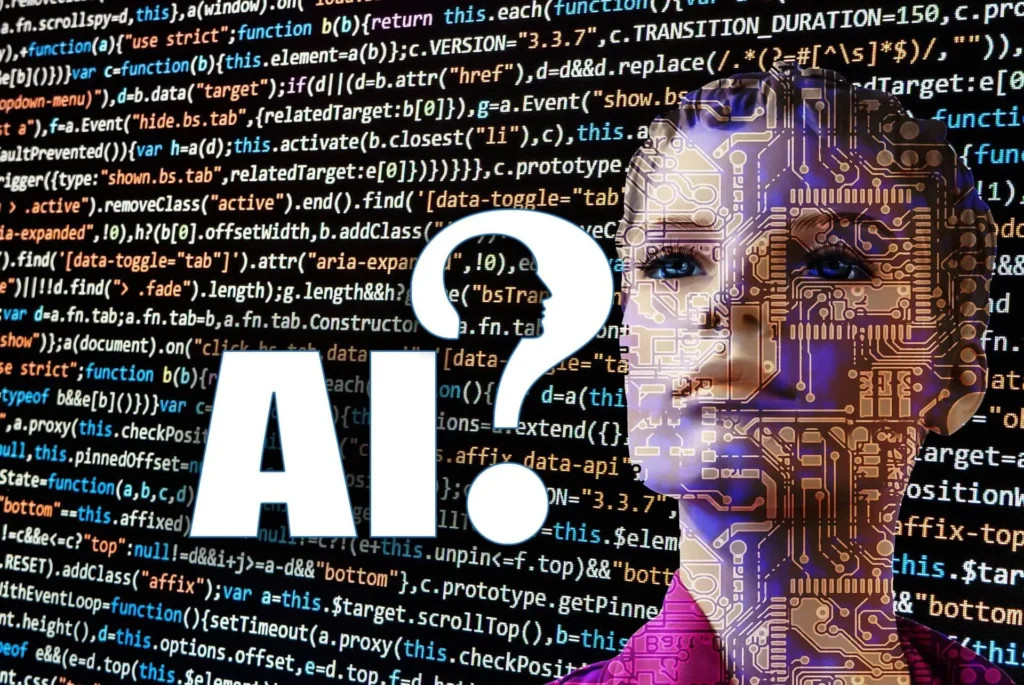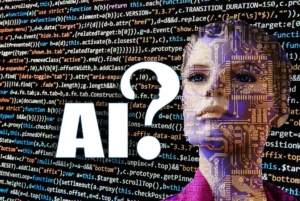Artificial intelligence: How AI Machine Technology Revolutionizing the World

Artificial intelligence (AI) has become an inseparable part of our daily lives, quietly working behind the scenes to enhance our experiences and simplify our tasks. From voice assistants that respond to our commands to personalized product recommendations, AI has permeated various aspects of our daily routines, making our lives more convenient and efficient.
Introduction
Welcome to the era of AI and machine learning, where technological advancements have reached new heights. Among the cutting-edge innovations, Artificial Intelligence (AI) has emerged as a game-changing technology, revolutionizing industries and reshaping our daily lives. With its remarkable ability to mimic human intelligence and perform complex tasks, AI is paving the way for unprecedented advancements in various fields. In this blog, we will delve into the intricacies of artificial intelligence, exploring its fundamental concepts, applications, and the impact it has on society. From understanding the basics of AI to uncovering real-world use cases, we will embark on a journey to unravel the transformative power of this groundbreaking technology.
What is Artificial Intelligence?
Artificial Intelligence refers to the development of computer systems capable of performing tasks that typically require human intelligence. These tasks include problem-solving, learning, reasoning, and decision-making. AI systems leverage algorithms and vast amounts of data to recognize patterns, make predictions, and generate insights. AI can be classified into two categories: Narrow AI and General AI. Narrow AI focuses on specific tasks, while General AI aims to replicate human-level intelligence across various domains. Machine Learning and Deep Learning are key components of AI that enable systems to learn from data and improve performance over time.
AI in Everyday Life
AI has become deeply embedded in our daily lives, enhancing convenience and productivity. Virtual Personal Assistants like Siri, Alexa, and Google Assistant leverage AI to understand and respond to human commands, manage schedules, and provide personalized recommendations. Smart Home Automation systems use AI to control appliances, lighting, and security, creating a seamless and intuitive living environment. In healthcare, AI aids in medical diagnoses, drug discovery, and personalized treatment plans. AI-powered educational tools facilitate personalized learning experiences and adaptive tutoring.
AI in Industries
AI is transforming industries by optimizing operations, improving decision-making, and driving innovation. In finance, AI enables fraud detection, algorithmic trading, and customer service automation. Manufacturing benefits from AI-driven robotics, predictive maintenance, and quality control. Transportation is revolutionized by AI through autonomous vehicles, traffic management, and route optimization. Retail experiences AI-powered recommendation systems, inventory management, and customer analytics.
The Future of AI
AI research and development continue to advance, with breakthroughs in areas such as Natural Language Processing, Computer Vision, and Robotics. Ethical considerations in AI development are gaining attention, focusing on transparency, fairness, and accountability. The impact of AI on the workforce raises concerns about job displacement and the need for upskilling. Collaboration between humans and AI, known as Augmented Intelligence, harnesses the strengths of both to achieve superior outcomes.
Challenges and Concerns in AI
Ethical issues in AI include biases embedded in algorithms and the potential for discrimination. Data privacy and security are crucial concerns due to the vast amounts of personal data involved. Regulation and policy development are needed to ensure responsible AI deployment. Building public trust in AI is essential, as misconceptions and fears can hinder adoption and acceptance.
Conclusion
Artificial Intelligence is a transformative force with the potential to reshape society across various domains. Embracing AI responsibly involves addressing ethical considerations, safeguarding privacy, and fostering trust. As AI continues to evolve, collaboration between humans and intelligent machines will become increasingly important. By harnessing the power of AI, we can unlock new possibilities, improve decision-making, and create a better future.
Artificial intelligence is changing how we live and use technology. It helps us with personalized recommendations and advanced medical tests. As AI gets better, it’s important to use it responsibly and ethically. Subscribe to our blog to learn more about AI and stay updated. Share your thoughts by leaving a comment. Let’s talk about AI and how it will shape our future!
FAQs
- What is artificial intelligence (AI)?
- Artificial Intelligence refers to the development of computer systems that can perform tasks requiring human intelligence, such as problem-solving, learning, and decision-making. AI systems aim to mimic human cognitive abilities and improve efficiency and accuracy in various domains.
- How does artificial intelligence work?
- Artificial intelligence works by leveraging algorithms and vast amounts of data to recognize patterns, make predictions, and generate insights. Machine learning and deep learning are key components of AI, enabling systems to learn from data and improve performance over time.
- What are the main applications of artificial intelligence?
- Artificial intelligence finds applications in numerous industries and sectors. Some common applications include virtual personal assistants, autonomous vehicles, medical diagnosis, fraud detection, recommendation systems, and natural language processing.
- What is the difference between narrow AI and general AI?
- Narrow AI, also known as weak AI, focuses on specific tasks and performs them with high accuracy. Examples include voice assistants and image recognition systems. General AI, on the other hand, refers to systems that possess human-level intelligence across various domains and can understand, learn, and apply knowledge similar to humans.
- What are the ethical considerations in artificial intelligence?
- Ethical considerations in artificial intelligence include addressing biases in algorithms, ensuring transparency and fairness, protecting data privacy, and addressing the potential impact on jobs and societal inequalities. It is important to develop AI systems that are unbiased, accountable, and respect human values.
- How is artificial intelligence impacting the job market?
- Artificial intelligence has the potential to automate certain tasks, which may lead to job displacement in some sectors. However, AI also creates new job opportunities, particularly in areas that require human creativity, problem-solving, and emotional intelligence. Upskilling and reskilling are crucial to adapt to the changing job market.
- Can artificial intelligence replace human intelligence completely?
- While artificial intelligence has made significant advancements, achieving human-level intelligence across all domains (general AI) is still a challenge. AI systems excel in specific tasks but lack the broader understanding and adaptability of human intelligence. The goal is to create collaborative systems where humans and AI complement each other’s strengths.
- How can I learn more about artificial intelligence?
- To learn more about artificial intelligence, you can explore online courses, attend workshops and conferences, read books and research papers, and engage in hands-on projects. There are numerous resources available to help you understand the concepts, algorithms, and applications of artificial intelligence.
Remember that artificial intelligence is a rapidly evolving field, and these FAQs provide a general understanding of the topic. It’s important to stay updated with the latest developments and research in AI to fully grasp its potential and implications.
Related Searches
